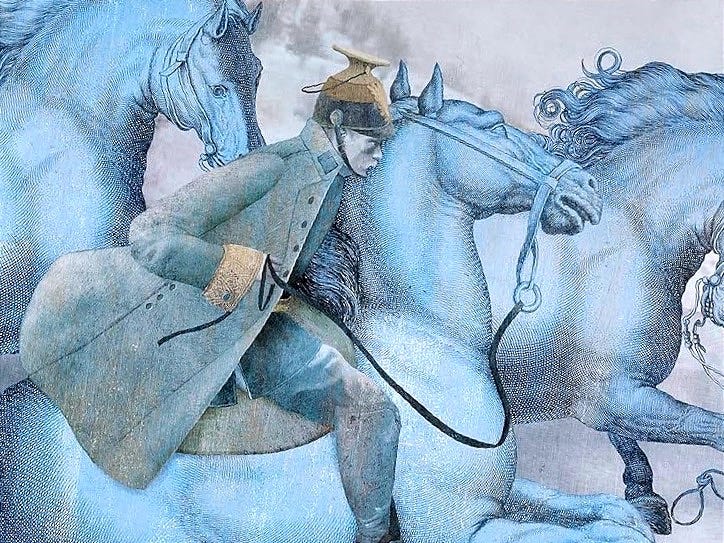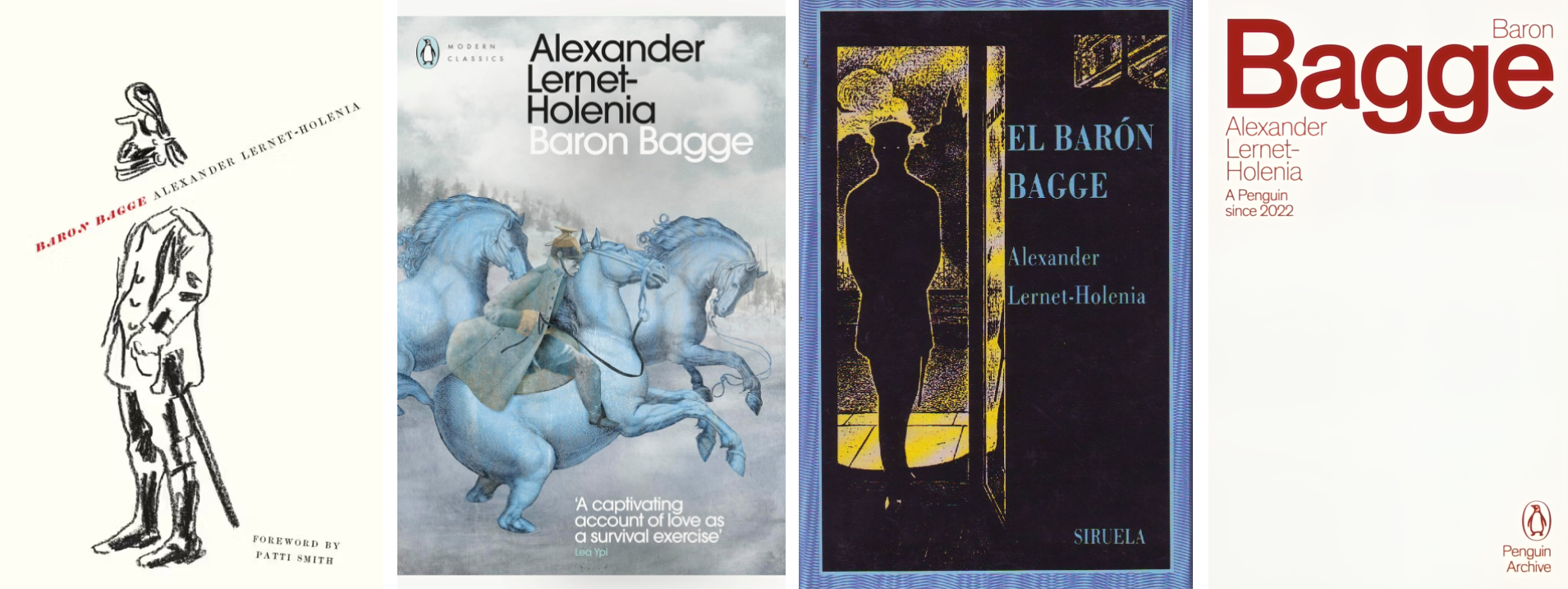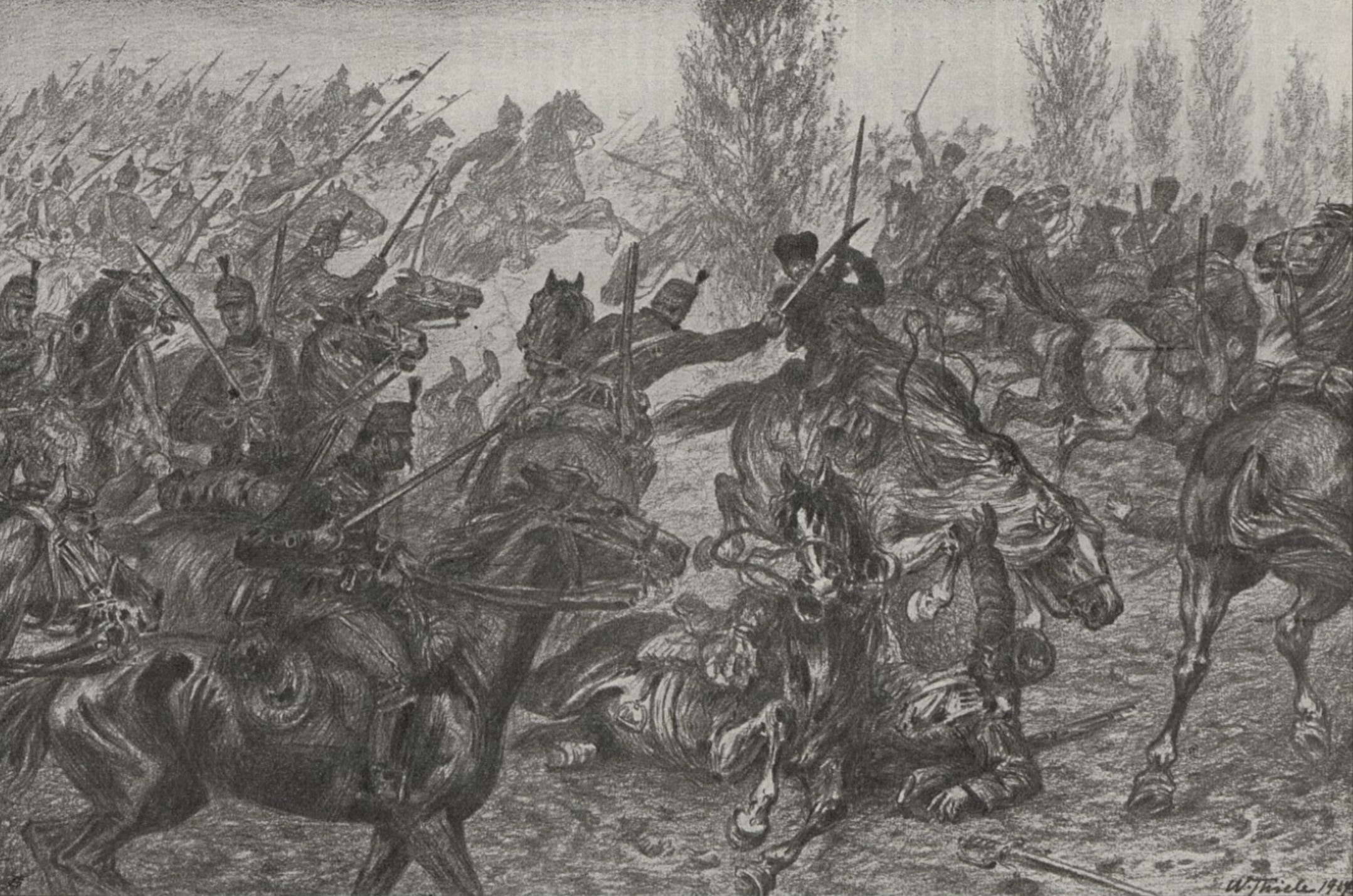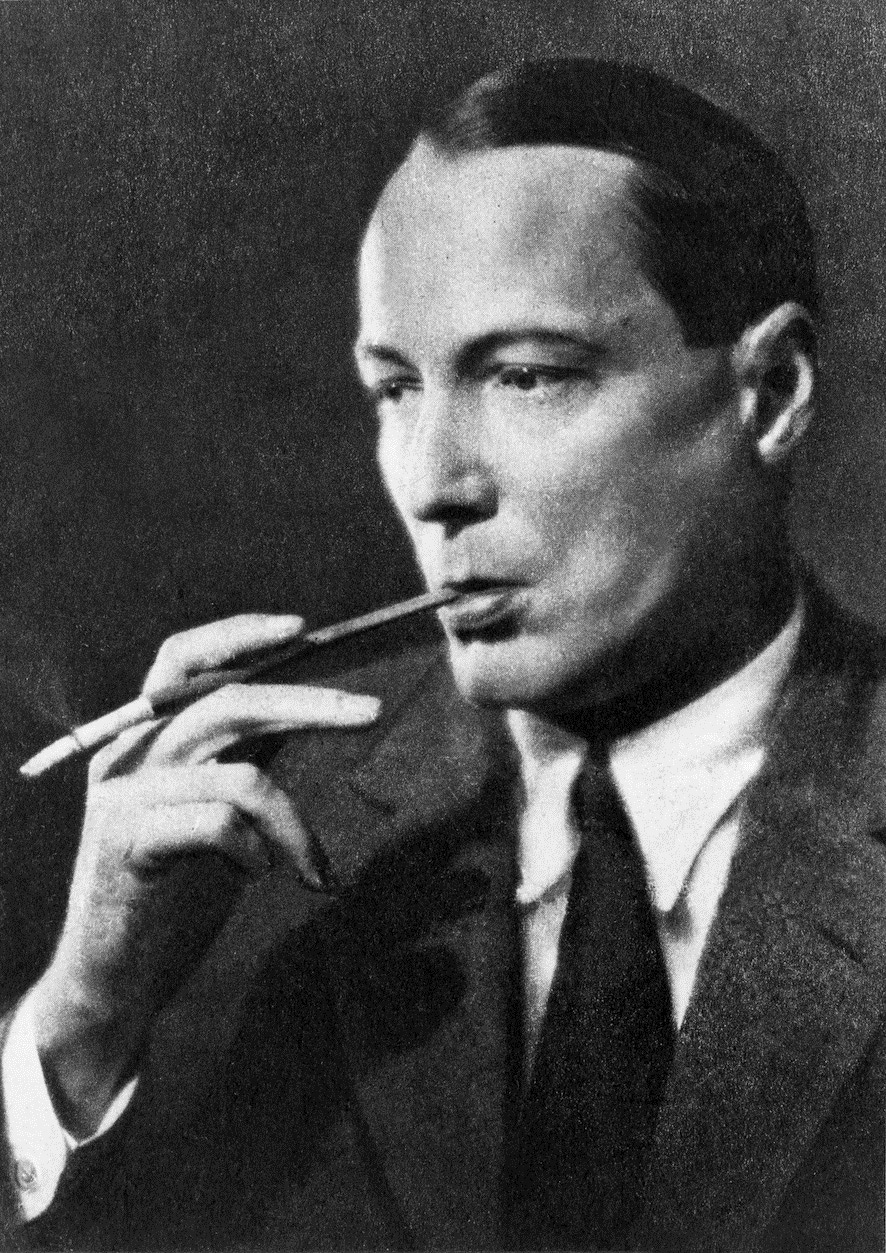A Dream that Will Change You
Reviewing Alexander Lernet-Holenia’s Ghostly Novella ‘Baron Bagge’
We habitually divide dreams from reality, and yet some experiences seem to bridge the two—passing with all the strangeness of a dream but striking with the force of real life. For these, especially as they recede into the twilight of half-memory, the question of whether they’re real becomes moot. They really affect us.
Thus with Baron Bagge, a 1936 novella by the Austrian poet, playwright, and novelist Alexander Lernet-Holenia.
Barely sixty pages long and with no chapter or section breaks, this is nevertheless an absorbing masterpiece of mood, atmosphere, and longing. It is also one of the rare books for which I would recommend an immediate second reading, as its final revelations transform the whole work.
Though primarily set on the Eastern Front during the First World War, specifically in the late winter or early spring of 1915 before a major Austro-Hungarian offensive against Russia, Baron Bagge begins with a half-page prologue set after the war. The Baron, an aloof former cavalry officer, has attracted the attentions of a young woman. Her brother, claiming Bagge is a scoundrel who has driven two other women to suicide by toying with their hearts, challenges him to a duel. Friends prevent this from taking place, and Bagge tells the unnamed narrator who introduces the book his story.
During the war, Bagge and his two closest friends in the army, a young officer named Maltitz and an American volunteer from Kentucky named Hamilton, take part in a scouting mission. Their squadron commander, the single-mindedly aggressive Semler, has been ordered to find the Russians, who have recently made a strategic withdrawal, and report back. Despite terrible forebodings among Bagge and his friends, the cavalry set off through the snowy countryside.
Semler eventually finds a Russian rearguard entrenched around a bridge, a strong position, and orders a seemingly suicidal charge. Bagge and his comrades put spurs to their horses, the Russian machine guns open fire, and—
Warning: Skip Ahead to Avoid Spoilers!
They charge through the Russian positions, take the bridge, and plunge deeper into the countryside beyond.
Bagge cannot believe their good luck—a victory against the odds, with no more than a little dirt thrown against his uniform in the charge. And yet Semler still seethes, ordering his men onward in pursuit, and Maltitz and Hamilton seem strangely subdued in the aftermath of a glorious success. The squadron races across the plains toward the mountains for days with no sign of the Russians or even of civilians. The countryside lies utterly empty. Bagge, haunted, worries about what is to come.
Bewildered by the chase as well as bemused by his friends’ standoffishness, he also becomes distracted. He knows that they will pass through the village of Nagy Mihaly, his mother’s childhood hometown. Though he has never seen it, she had spoken of it often, as well as another aristocratic family that lived there—the Szent-Királys, who happen to have a daughter about Bagge’s age. His mother had died wishing he could meet and marry Charlotte.
When the squadron arrives at Nagy Mihaly, a small town teeming with excited people after miles and miles of empty land, Charlotte stands by the road, waiting for him.
It is at this point that Baron Bagge enters its most mysterious section, as Bagge woos and is wooed by Charlotte. Her family hosts lavish balls and the mood of celebration continues for days. Neither Charlotte nor anyone else seems to care about the war.
Semler is furious. After a few days in Nagy Mihaly, he orders the squadron to continue. Charlotte begs Bagge not to leave. If he leaves, she tells him, they will never see each other again. He reassures her: Despite his earlier worries, had they not triumphed at the bridge? With that, he sets off.
The land empties again. Stranger things than before happen. Hamilton produces a flintlock Kentucky rifle and shoots a deer. Semler stares ahead. And on the ninth day of their reconnaissance they reach another bridge—a golden bridge. Bagge is filled with fear but the squadron, moving as one, sweeps him toward it. At last he wrenches his horse out of the column . . .
And wakes up back at the first bridge, with the men and horses of the squadron falling around him. His nine-day ride toward death has transpired in the moment after he was shot through the chest. He turns out to be one of the only survivors of the attack. It was all a dream.
Or was it? Bagge himself is not sure. During his recovery, one of his nurses is an old society matron who, it turns out, knew the Szent-Karálys. Knew, because they are dead, Charlotte included.
And yet, Bagge tells us, he considers himself married, which is why he has broken so many hearts since the war. What happened to him on his nine-day ride is more real to him now than the world to which he returned.
Spoilers Done: It’s Safe to Reenter the Water
I both loved and felt puzzled by Baron Bagge the first time I read it. Rereading it revealed more of its intricate art, and it became deeper and even more moving. Having reflected on it—and struggled mightily with how to approach reviewing it—for several weeks and through several readings, two things about Baron Bagge stand out as special.
The first is the nature of its final revelation. I hesitate to call it a “twist,” which suggests a cheap plot contrivance, especially given the reputation of “it was all a dream” as a cliché and a cheat. In Baron Bagge, the revelation that Bagge’s nine-day journey down the Hel-road of Norse myth took him through a liminal world populated only by the dead is the central point of the story—and to Bagge himself as a character. It changed him, and he has lived with it for years beyond the deaths of Maltitz, Hamilton, Semler, the rest of the squadron, and Charlotte.
The nearest parallel I can think of in modern storytelling is one of the only Star Trek: The Next Generation episodes I’ve ever seen, “The Inner Light,” in which Captain Picard is knocked unconscious and lives forty years—loving, marrying, raising children—in half an hour. Baron Bagge imparts a similar emotional weight, but with the feeling not of lost years but of a brief but painful loss from long ago.
What keeps Baron Bagge’s ending from feeling like a cheat is both that deep emotional resonance as well as something revealed by a second reading: Bagge spends the first several pages of the story telling the reader what is going to happen to him and the squadron. And with surprising specificity: Semler is going to get them killed; they’re all in a mass grave now. He even mentions the nine-day ride toward Death.
The ending is powerfully foreshadowed from the beginning and so, the second time through, the anxiety and surprise of the first reading gives way to a profound sense of dread and loss—irony leading to pity, as in Greek tragedy.
But Baron Bagge’s other great strength as a story is its atmosphere—dreamlike, wistful, pervaded with longing. Lernet-Holenia creates and sustains this mood wonderfully, not least through the vivid images of the story: the long misty ride through empty, snowy valleys, the ball where everyone wears old clothes—which Bagge assumes is an odd costume-ball—the last glance back at Charlotte and the village as they fade into the fog. It is one of the rare “dreamlike” stories that really feels like a dream: real while one is in it, vivid and episodic, with a strangeness that only becomes accountable upon waking.
Edgar Allan Poe argued that the strength of a story that can be read in a single sitting is its “unity of effect.” Such stories can create and sustain specific moods in the reader that a novel, which the reader will of necessity set down in order to do other things, must build cumulatively. Baron Bagge, atmospheric, full of striking images, surprising but internally coherent, and building inexorably to a powerful emotional effect, is a perfect example of Poe’s principles at their best.
Baron Bagge is at once a simple and staggeringly complex story—and difficult to write about. It’s a small gem that deserves to be better known, or at least to be read again and again, a dream that will change you.
Thanks for reading! If you enjoyed this post, please hit the ❤️ below and share it with a friend.
More remarkable reading is on its way. Don’t miss out. Subscribe for free today.
And while you’re here, check out:








Maybe it’s difficult to write about, but you wrote about it compelling enough to prompt me to get the book! Thank you!
Ordered it from Amazon. Thx for rec.